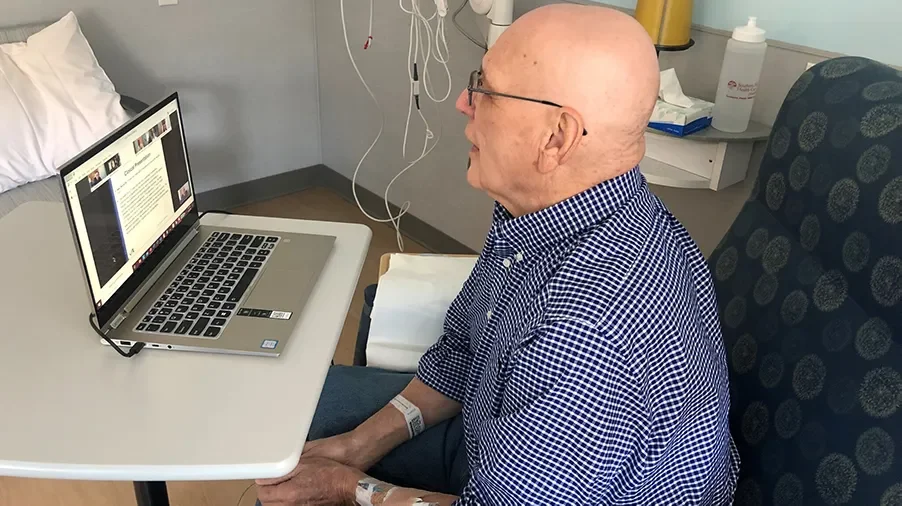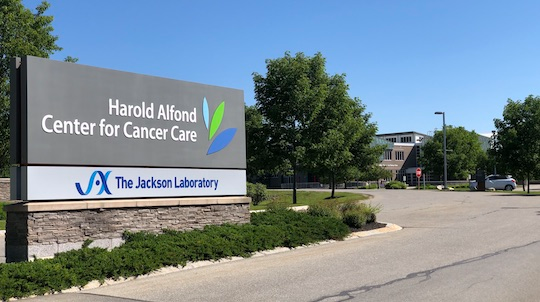Maine Cancer Genomics Initiative expands; offers clinical trials and new technology
Article | October 8, 2020
Since its establishment in 2016, MCGI, an alliance of Maine oncology providers led byThe Jackson Laboratory (JAX)and supported through the Harold Alfond™ Foundation, has been focused on providing patients with access to genomic testing and facilitating interpretability of test results through educational activities for clinicians. Over the next five years,thanks to an $11.8 million grant from the Foundation, MCGI will now advance how clinicians and patients can act upon their individual results, by providing greater access to novel targeted therapies.
“The Jackson Laboratory has been deeply engaged in cancer research in Maine for over 90 years. We are one of only 71 academic cancer centers in the U.S. designated by the National Cancer Institute and had historically been focused on basic cancer biology. Through The Maine Cancer Genomics Initiative, we have been making a direct impact on patient care by providing access to sophisticated cancer genomic technologies in a rural state like Maine,” said Edison T. Liu, M.D., president and CEO of the Laboratory. “The MCGI expansion will take this impact further by bringing a range of precision therapies to Maine. Once again, through the extraordinary generosity of the Harold Alfond Foundation, we look forward to making an even greater impact on the lives of patients and their families throughout the State.”
A model for personalized cancer care in a rural setting
MCGI is a statewide collaboration of JAX scientists and community oncologists that brings innovative cancer genomic testing, education and drug access infrastructure to Maine. Every oncology practice in the state is a partner in the program. Initially driven by the need for greater availability of cancer genomic testing in Maine, MCGI has become a model for community precision oncology, or personalized cancer care, in a rural setting. Precision oncology uses analysis of a patient’s normal genetics and the specific mutations found in their tumors to guide more targeted treatments.

“Over the last four years, we’ve made great progress with precision medicine in Maine, especially in rural areas of the state,” said Jens Rueter, M.D., medical director of MCGI. “In the first phase of the initiative, we provided genomic tests to over 1,600 cancer patients, affecting patient lives from Caribou to Kittery. Over the next five years, we will focus our efforts on helping patients navigate the steps of entering genome-informed clinical trials and of accessing targeted therapies as part of their routine medical care.”
The initiative also plans to expand its reach to other areas of the northeast beyond Maine.
Utilizing technology to save lives
MCGI will also enhance its genomic tumor boards, which are specialized teams of oncologists, researchers and clinicians from around the world who convene in person and by videoconference to review individual patients’ test results and design personalized treatment plans. The genomic tumor boards will now include an online model of participation, improving their ability to support clinicians in their decision-making processes.
Additionally, MCGI will assess, coordinate and provide funding to test new tools to enhance information dissemination and genetic services through online platforms. These digital tools will not only enhance the understanding and application of genomic and genetic testing, but will improve the delivery of precision oncology in rural communities.
“The dissemination of technology is becoming a limiting factor in healthcare in this country, and by bringing new technology to Maine in the next phase of MCGI, we will provide access to personalized therapeutics - guided by genomic testing - to even more cancer patients in this great state,” said Liu.
